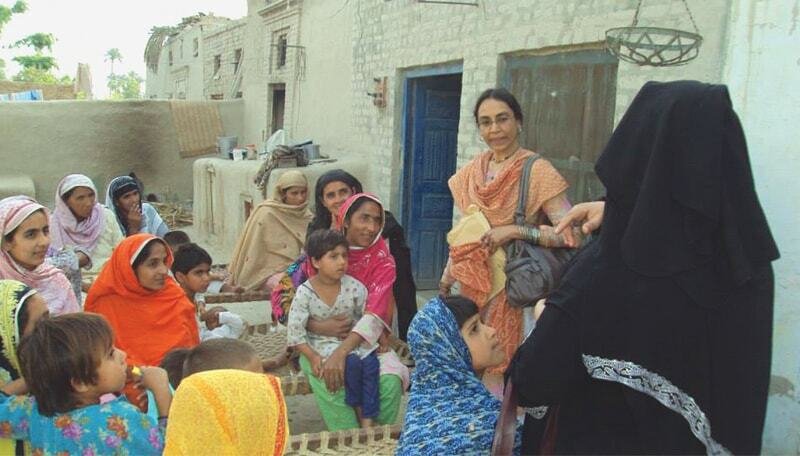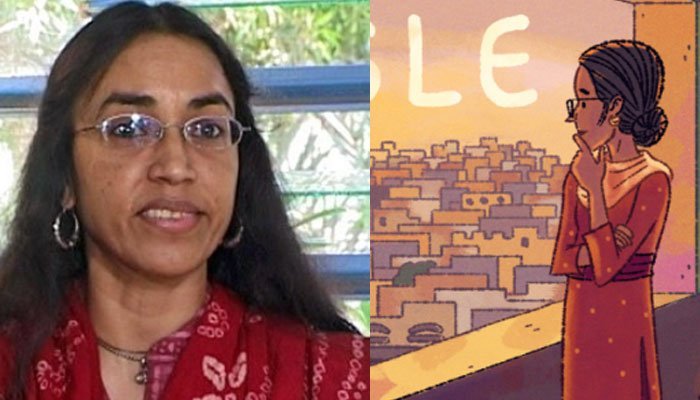Google has honoured Pakistani slain social activist, architect, and urban planner Perween Rahman on her 65th birth anniversary. She devoted her life to uplifting marginalised communities, says a statement by Google.
The name Perween Rahman will always be synonymous with Karachi’s katchi abadis, where she worked closely with communities to improve their quality of life through simple yet sustainable interventions.

Born on Jan 22, 1957, in Dhaka, Bangladesh, Rahman relocated with her family to Karachi in 1971. She studied architecture and went on to do her master’s in housing, building, and urban planning from the Institute of Housing Studies in Rotterdam, the Netherlands.
Perween’s personal experiences of displacement inspired her to pursue a career advocating for housing security. In 1982, she began working as an unpaid intern for the Orangi Pilot Project (OPP), an NGO working with underserved communities in Orangi, one of the world’s largest informal settlements on the outskirts of Karachi. The organisation focused on the provision of basic amenities such as low-cost sanitation, housing, healthcare, education and credit for micro-enterprise.
Perween and her team at the Orangi Pilot Project had been documenting the old Goths (villages), illegal water hydrants and large-scale encroachments on state land in Karachi. Many residents could not rely on legal protection to maintain rights to their homes and were frequently evicted for construction projects.
From meticulously documenting property boundaries and ownership information to spearheading education and community engagement initiatives, Perween’s work soon became integral in protecting the region’s precarious community.
Her dedication to helping Orangi Town’s 1.5 million residents protect their land rights led to her appointment as head of the OPP’s housing and sanitation programmes. With Perween at the helm, the OPP partnered with the government to set up 650 private schools, 700 medical clinics, and 40,000 small businesses.
She has been given numerous accolades for her achievements, and her efforts have played an instrumental role in defining how Pakistani settlements are developed today.
She was shot dead by four assailants near her office in Orangi Town Pirabad Police Station on March 13, 2013. Joint interrogation teams (JITs) that probed her murder found the roles of militant and political groups behind her murder.
Also read: Perween Rahman murder: 8 years on, will the ATC’s verdict today finally provide closure?
The manner in which the early ‘investigation’ unfolded was met with incredulity and everything smacked of a massive cover-up.

The High Asia Herald is a member of High Asia Media Group — a window to High Asia and Central Asia

